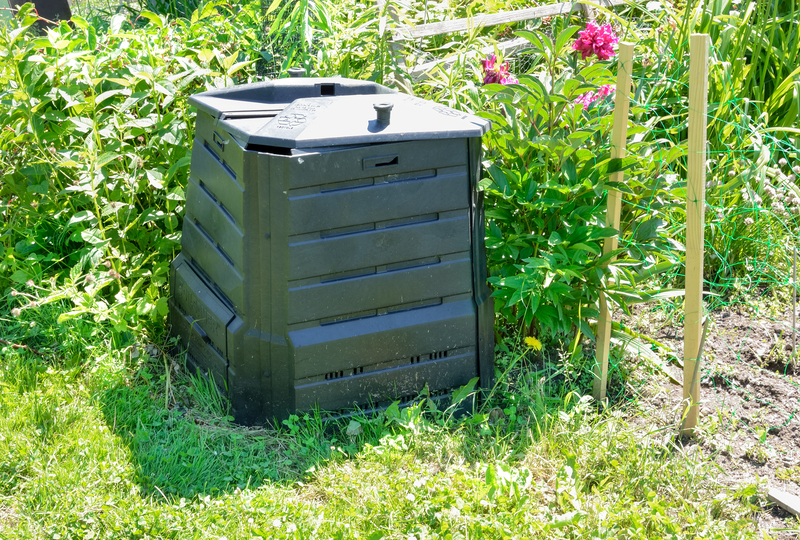Electronic Waste Recycling: Boosting Environmental Health
In today's rapidly advancing technological landscape, the swift pace at which electronic devices become obsolete has given rise to a significant environmental challenge known as electronic waste, or e-waste. The recycling of electronic waste has become a critical focal point in efforts to enhance environmental health and promote sustainable development.
Understanding Electronic Waste
Electronic waste encompasses a wide range of discarded electronic devices and appliances such as smartphones, computers, televisions, and household appliances. These items often contain hazardous substances like lead, mercury, and cadmium, which pose severe risks to the environment and human health if not properly disposed of.
The Environmental Impact of E-Waste
The improper disposal of e-waste can lead to significant ecological harm, including:
- Soil and Water Contamination: Toxic metals leach into the soil and water, adversely affecting local ecosystems and potentially entering the food chain.
- Air Pollution: Burning electronic waste releases harmful chemicals into the atmosphere, contributing to air pollution and respiratory problems.
- Resource Depletion: E-waste contains valuable materials such as gold, silver, and palladium. Failure to recycle results in the unnecessary depletion of finite natural resources.

The Importance of Recycling Electronic Waste
Electronic waste recycling is a crucial process that helps mitigate these environmental issues. Recycling e-waste offers numerous benefits, which include:
1. Conservation of Natural Resources
By recycling electronic devices, we recover valuable materials and reduce the demand for raw resources. This conservation of natural resources not only alleviates the pressure on mining activities but also preserves the ecosystems that would be disrupted by these operations.
2. Reduction of Greenhouse Gas Emissions
Manufacturing new electronics requires significant energy, which often comes from burning fossil fuels. By recycling, we decrease the demand for new production, thereby reducing greenhouse gas emissions and minimizing our carbon footprint.
3. Prevention of Soil and Water Pollution
Proper recycling processes ensure that hazardous substances are safely extracted and managed, preventing contamination of soil and water resources. This safeguards biodiversity and protects public health.
4. Economic Growth
Recycling e-waste contributes to economic growth by creating job opportunities in recycling facilities and associated industries. It fosters innovation in recycling technology and material recovery processes.
Effective Strategies for E-Waste Recycling
To fully leverage the benefits of electronic waste recycling, effective strategies must be implemented at various levels:
Government Policies and Regulations
Governments play a crucial role in facilitating e-waste management by implementing policies that encourage recycling and responsible disposal. Regulations may include:
- Extended Producer Responsibility (EPR): Holding manufacturers accountable for the end-of-life management of their products.
- Deposit-Refund Schemes: Incentivizing consumers to return obsolete electronics for recycling through financial rewards.
- Infrastructure Development: Supporting the establishment of collection centers and recycling facilities.
Corporate Responsibility
Corporations, particularly manufacturers and retailers, have a critical role in ensuring that electronic products are designed for sustainable end-of-life disposal. Key actions include:
- Product Design: Designing electronics with recyclability in mind, using non-toxic materials and modular components.
- Take-Back Programs: Instituting programs that allow consumers to return old electronics for recycling or refurbishment.
Consumer Awareness and Participation
Educating consumers about the importance of e-waste recycling and how to properly dispose of electronics is vital. Awareness campaigns can encourage behaviors such as:
- Donating: Contributing functional electronics to charities or schools.
- Participating in local e-waste collection events or drop-off points.

Innovative Technologies in E-Waste Recycling
Advancements in technology have revolutionized the recycling of electronic waste, making it more efficient and effective:
Automated Sorting Systems
Automated sorting systems utilize artificial intelligence and machine learning to accurately identify and separate different components of electronic waste, improving the quality and speed of the recycling process.
Extraction Technologies
Innovative chemical and biological extraction technologies are being developed to safely and efficiently recover valuable metals from e-waste, minimizing environmental impact.
Refurbishing and Repurposing
Rather than treating all discarded electronics as waste, refurbishing and repurposing them for resale or donation extends their life cycle, reducing the volume of waste generated.
Conclusion
Recycling electronic waste is not merely an option but a necessity for boosting environmental health and promoting sustainability. By conserving resources, reducing pollution, and fostering economic growth, e-waste recycling serves as a cornerstone of environmental responsibility. As we continue to innovate and implement effective recycling strategies, supported by robust policies and increased consumer awareness, we pave the way for a healthier planet and a sustainable future. Together, we can turn today's electronic waste into tomorrow's resources, ensuring a cleaner and more sustainable world for generations to come.